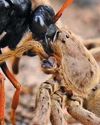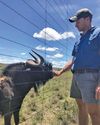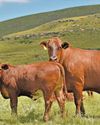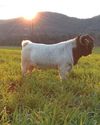يحاول ذهب - حر
Covid-19 And Its Effect On Small Food Businesses
August 28, 2020
|Farmer's Weekly
COVID-19 has hit small- and medium-sized enterprises in South Africa’s food sector hard. Andrew Bowman, a lecturer at the Centre of African Studies at the University of Edinburgh in Scotland, and Dr Reena das Nair, a senior researcher at the Centre for Competition, Regulation and Economic Development at the University of Johannesburg, discuss some of the approaches that can be followed to better support these businesses.
-

COVID-19 has prompted widespread discussion of the resilience of food systems and how efficiency and competitiveness have previously been understood. Recent decades have seen the growth of increasingly complex food value chains. These are underpinned by just-in-time delivery systems, a growing share of food products sold through supermarkets, and increasing concentration of ownership among powerful, large food manufacturers.
The pandemic has further emphasized the need for a more diverse and inclusive food system, in which small- and medium-sized enterprises (SMEs) play a key role.
As part of a larger project investigating challenges faced by agro-processing SMEs, we conducted qualitative telephone interviews with 16 SME maize-milling and dairy firms during lockdown to gauge the effects of the pandemic.
As essential businesses, food manufacturers continued to operate through lockdown, and it might be assumed that the impact of COVID- 19 on these industries was minimal. However, this was not the case. While aggregate production levels were maintained, super maize meal output in April was 25% higher than the same month last year and consumer prices remained relatively stable, SMEs in these industries faced multiple disruptions throughout their supply chains.
Despite this, there are still steps that can be taken to shield these enterprises from the worst effects of the pandemic. This should go beyond financial aid and improved access to credit to include, for example, supporting them in diversifying their routes to markets. Such support is critical because the exit of SMEs will exacerbate high levels of concentration and reduce diversity, with consequences for social inclusion and food system resilience.
PRECARIOUS
هذه القصة من طبعة August 28, 2020 من Farmer's Weekly.
اشترك في Magzter GOLD للوصول إلى آلاف القصص المتميزة المنسقة، وأكثر من 9000 مجلة وصحيفة.
هل أنت مشترك بالفعل؟ تسجيل الدخول
المزيد من القصص من Farmer's Weekly

Farmer's Weekly
Pastry delights and cupcakes
The versatility of pastry in baking and cooking is best flaunted by two vastly different recipes appealing to the sweet and savoury tooth, while a novel way to bake those Christmas-themed cupcakes will also go down well.
4 mins
December 5-12, 2025

Farmer's Weekly
Specialised spider-hunting wasps
Wasps are apex predators of the insect world and have developed many survival strategies. One group of wasps focuses on hunting spiders to provide a source of food for their larval offspring
2 mins
December 5-12, 2025

Farmer's Weekly
From bulls to boardrooms: farming part-time as a professional
Maintaining a farm requires time, resources, and commitment. Farming part-time while being fully employed elsewhere can seem daunting and risky. Although it certainly presents unique challenges, it is feasible for some. Koot Klopper and Herman van Heerden spoke to Henning Naudé about how excellent time management and the delegation of resources, as part-time farmers, successfully keep their farms productive.
5 mins
December 5-12, 2025

Farmer's Weekly
Holy Shiitake: mastering the science of gourmet fungi
Mushroom production is inherently the practice of expanding mycelium. But since wanted and unwanted fungi flourish under the same circumstances, a mushroom farmer's biggest challenge is ensuring the right fungi prevails. Lindi Botha reports on Rory Brooks' learning curve.
9 mins
December 5-12, 2025
Farmer's Weekly
No more 'secret' price hikes?
'Secret' electricity price hikes in South Africa have been curbed in a game-changing court ruling, explains Felix Dube, lecturer in the Department of Law at the University of Venda.
4 mins
December 5-12, 2025

Farmer's Weekly
The cutworm scourge, and how to control it
The dominant cutworm, Agrotis segetum, is causing renewed, costly damage to South African maize, soya bean, and sunflower.
5 mins
December 5-12, 2025
Farmer's Weekly
Legislative gap requires a rethink on biosecurity controls
Since the dawn of democracy, the agriculture sector has cemented its place as one of the essential and trusted pillars for economic growth, job creation, and foreign earnings in South Africa.
2 mins
December 5-12, 2025

Farmer's Weekly
From kitchen experiments to a thriving meat empire
What started as an after-hours kitchen project in the Truter household has grown into the fully fledged meat empire Deli-Co. Brothers Pieter and Hendri Truter told Glenneis Kriel how they turned a local favourite into a multigenerational family business.
7 mins
December 5-12, 2025

Farmer's Weekly
Brushing up on your 'cow speak'
Experienced stockman and cattle judge Willie de Jager spoke to Sabrina Dean about some of the basics of reading cattle behaviour and how best to handle these animals.
8 mins
December 5-12, 2025

Farmer's Weekly
Corporate day job fuels farming dream
Marius Smit lives in the middle of Gauteng in Centurion and spends his workdays in the fast-paced high-stress corporate sector as a group forensic head for Discovery.
5 mins
December 5-12, 2025
Translate
Change font size
